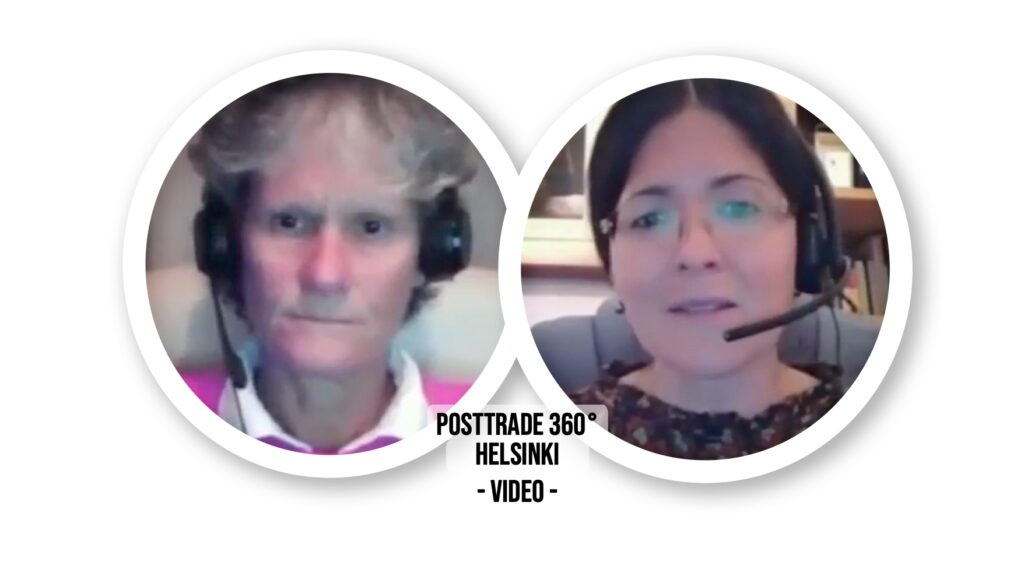BNY Mellon experts Lorraine White and Pilar Espejo joined the PostTrade 360° Helsinki 2020 conference in November, presenting a closer look at TRaCE – the tax-withholding procedures which Finland is pioneering. We are proud to present their full session video here.
[This is an update, now with the video, of the original news post from the first conference day, 18 November. To find your favourite topics easier in the video, note the “chapters” icon in the player, or click the snowballs in the time bar.]
Lorraine White is Global Head of Custody Tax Capabilities with BNY Mellon. Pilar Espejo is Global Head of Tax and Policy Assurance with the same bank, but speaks also in her capacity of chairwoman of the tax issues committee of the Association of Global Custodians.
Already a decade ago, the OECD presented the Treaty Relief Compliance Enhancement (TRaCE), which provided a model for a global solution to challenges with cross-border withholding tax relief. Today, Finland is working towards the implementation of its version of the system, due to go live January 2021.
“Finland has been the poster child for for all of this, and as a global custodian community we have welcomed Finland’s commitment to introduce a streamlined withholding tax regime based on the OECD TRaCE IP,” says Pilar Espejo, who could share a lot of information from close and broad dialogue with the Finnish tax authority.
US inspired
The TRaCE implementation package is a model, broadly based on the US relief system for withholding tax at source. Lorraine White listed key features that it outlines – such as the concept of an authorized intermediary (AI), and a standard for tax reporting with an XML format .
“TRaCE itself eliminates the need for annual certificates of tax residency and other burdensome heavy paper based processes and provides some tax certainty to the investor. Importantly, TRaCE is a concept and in practice – one hopes – provides tax authorities with access to data in a more streamlined manner, meaning they no longer have to sift through tons of paper and reports and provides tax authorities with reports and more timely data, meaning tax authorities should in principle, be able to free up their resources to focus on matters of real tax concern,” says Lorraine White.
Even so, there are some concerns, Pilar Espejo pointed out – heightened due diligence obligations being one in particular. One requirement is to actively monitor investors’ investment behaviour.
“To give you an example, you have to verify if the investor has entered into a stock lending arrangement, if they have held assets for a particular period, or if they have entered into that particular transaction to obtain treaty benefits.”
Registration to become an Authorized Intermediary in Finland is open.
News around the PostTrade 360° Helsinki conference is gathered here.
Click this link to download the Helsinki event magazine as pdf, or click here for the three agenda pages only.
By the way … are we connected on LinkedIn already, among the 1,400 post-trade pros who are? Follow us here.












